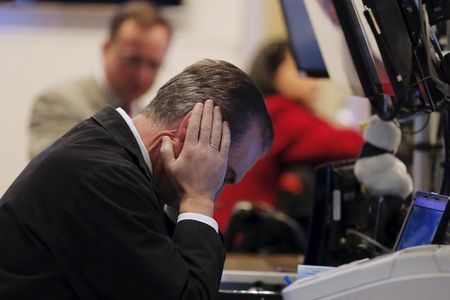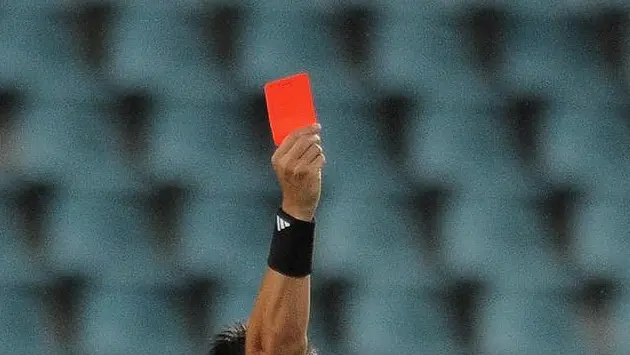In Tripoli, home to Lebanon’s richest politician, the poorest residents mourn their dead once again.
Among the dead were Mustafa Misto, who was a taxi driver in the city, and his three sons, whose bodies were found off the Syrian coast Thursday after leaving Lebanon on a migrant ship carrying more than 100 people. .
Lebanese Transport Minister Ali Hamiyah told Reuters that 95 people died in the crash, including 24 children and 31 women.
This is the deadliest ever made on such cruises from Lebanon, as growing desperation pushes more people to attempt the perilous journey on rickety, overcrowded boats in search of a better life in Europe.
Before embarking on the fateful journey, Misto was in debt, sold his car and went to his mother to provide food for his family, but was still unable to provide simple things like cheese for his children’s sandwiches, according to the his relatives and neighbors.
Rawan Al-Manea, 24, who is one of his relatives, said: “All the world (people) who go to the sea know their condition, they will die, but they say: Blessings, we have achieved a result. They do not commit suicide. , they will want to renew their life, look at that now they are in a new life and, God willing, their life there (which means in their death) will be better than this life ”.
The tragedy has highlighted the growing poverty in northern Lebanon, particularly in Tripoli, which is driving more residents to take desperate steps as the devastating financial meltdown continues for three years.
It also highlighted particularly marked and marked inequalities in the north. Tripoli is the birthplace of many very wealthy politicians, but the city has received little development or investment.
Although many sectarian leaders in Lebanon spend money in their communities to gain political support, Tripoli residents say their region suffers from neglect despite the wealth of its politicians.
During a gathering of mourners in Tripoli’s poor Bab al-Raml area, many expressed their anger at the city’s politicians, including Lebanese billionaire Prime Minister Najib Mikati.
Rawan Al-Manea added: “We are in a country that has no value for one person. We live in a country, but the leaders go out, suck money and cry, and at night people won’t come back.”
Tripoli, the second largest city in Lebanon with a population of around half a million, was one of the poorest cities in the country before Lebanon plunged into a financial crisis due to decades of corruption and mismanagement by the ruling elites.
Muhannad al-Hajj Ali, a researcher at the Carnegie Middle East Center, said Tripoli has not seen major development efforts since the 1975-1990 civil war, despite the political rise of the city’s wealthy businessmen.
Billionaires and Poverty
Mikati amassed most of his fortune from telecommunication businesses, and Forbes magazine ranked him as the fourth richest man in the Arab world in 2022.
Mikati’s office told Reuters Thursday that he has been the biggest advocate of social and economic development in Tripoli for more than 40 years, through its charitable foundations.
He added that he understands the suffering experienced by the Lebanese people in general and Tripoli in particular due to the crisis.
The Mikati House overlooking the sea on the outskirts of the city, known locally as “Mikati Palace”, has been in recent years a rallying point for protests against government corruption and economic desperation.
The Lebanese prosecutor accused Mikati in October 2019 of illegal enrichment for benefiting from funds earmarked for a subsidized housing loan program for poor families, charges he denies.
His office said the allegations were politically motivated and intended to discredit him and noted that another judge dismissed the case earlier this year.
troubled area
Reflecting the loss of communication between the people and politicians in Tripoli and the belief that nothing will change, only three out of ten citizens voted in the parliamentary elections held in May.
The north of the country is one of the most unstable parts of Lebanon since the end of the civil war, with Tripoli and the surrounding areas fertile recruiting grounds for Sunni militants.
Tripoli has recently become an example of the deteriorating security situation linked to the financial collapse.
Interior Minister Bassam Mawlawi announced a new security plan following the escalation of crimes and violence.
According to residents of the Palestinian refugee camp of Nahr al-Bared, dozens of people who were on the doomed boat are residing in the sprawling camp. There were also many Syrians, about one million of whom live in Lebanon as refugees.
The economic crisis has led to a massive increase in poverty rates. According to United Nations data, 80 percent of the Lebanese population of approximately 6.5 million is poor. The government did little to address the crisis, which the World Bank described as a deliberate stagnation “orchestrated” by the elites by strengthening their exploitative grip on resources.
Other boats attempted to sail from Lebanon last week and Cyprus rescued 477 people aboard two ships that left Lebanon.
The United Nations High Commissioner for Refugees says 3,460 people have left Lebanon, or have attempted to leave by sea since the beginning of this year, more than double the number in all of 2021.
Among the victims of the boat carrying Misto, a woman and her four children from the Akkar region in northern Lebanon. The mayor of Al Qarqif, where they come from, Yahya Al-Rifai, explained that her father was one of the few survivors. He described the crisis as worse than the civil war.
–


